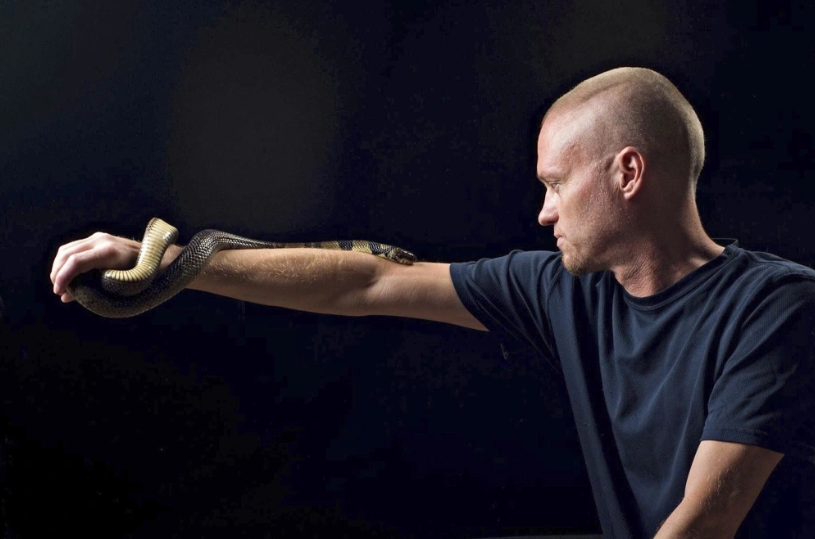Timothy Friede has been bitten over two hundred times by snakes, in order to build up an immunity to them. Now, he donates his blood to possibly life-saving research aiming to produce cures to some of the worlds’ most dangerous snakes.
Over the course of 20 years, Friede injected himself with increasingly large doses of venom from many types of snakes, including Mambas, Cobras, Taipans, and Kraits, slowly building up a tolerance to them. After this, he purposefully let snakes bite him. He survived.
Friede worked closely with a biotech company called Centivax in order to develop a broad antivenom using the antibodies in his blood, in hopes that it will be able to be used to prevent and protect against bites from a broad range of snakes.
Jacob Glanville, the CEO of Centivax, led the project, and is the first author on the paper that got published in Cell. After hearing about Friede and his immunity to snakes in the news, Glanville tried to get in contact with him to see if he’d be interested in participating in a study. “I said, ‘This might be an awkward question, but I would really like to get some of your blood.’” Friede gladly accepted the request, offering up his blood so that the research team could get started working on an antivenom with a range of the antibodies found in his body plus varespladib, a drug known for its ability to quell toxins. The mixture worked, completely protecting mice from lethal doses of venom from 13 different types of snakes, and offering partial protection against the venom of six others.
Friede stopped injecting himself with venom in 2018, and maintains a habit of getting checkups on his liver and kidney to make sure he’s in healthy condition. He discourages people from trying to do the same thing he did, citing its danger. He regrets the first time he allowed himself to be bitten. “Was it a mistake? Yes. Was it stupid? Yes,” he said. “Don’t do it.”
Glanville appreciates Friede’s contributions to the research, though also dissuades anyone from trying the same. “Most of those snakes would have killed him,” Glanville said. “Tim did something remarkable, and we think it could change medicine,” Glanville says, but “we are actively discouraging anybody from trying it. No one ever needs to do it again.”





















